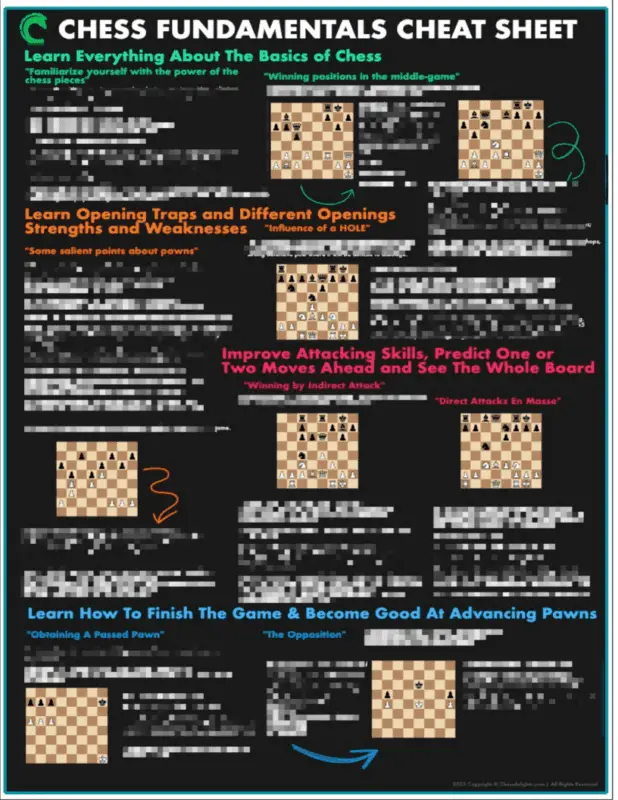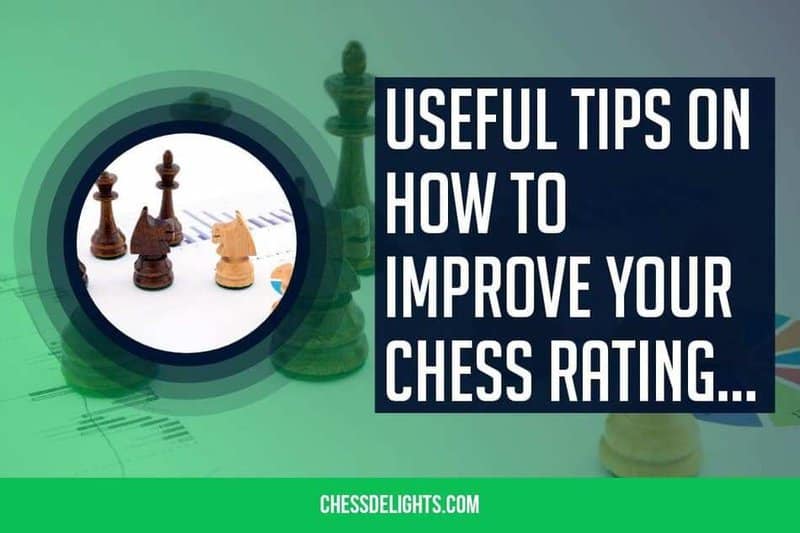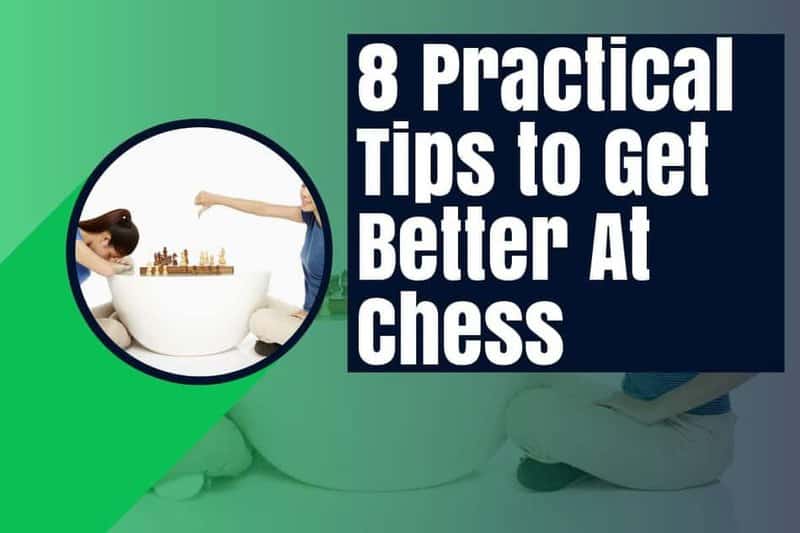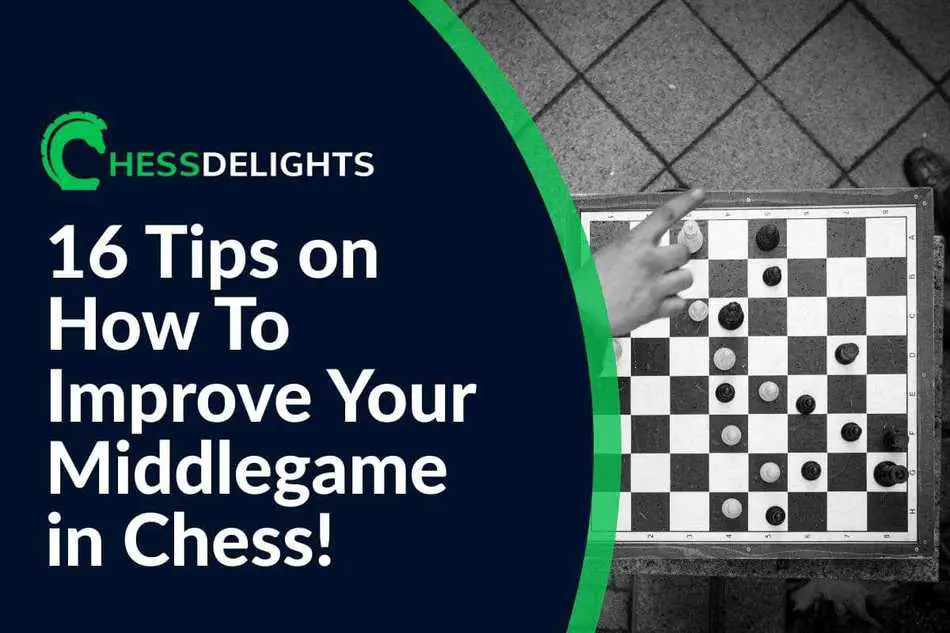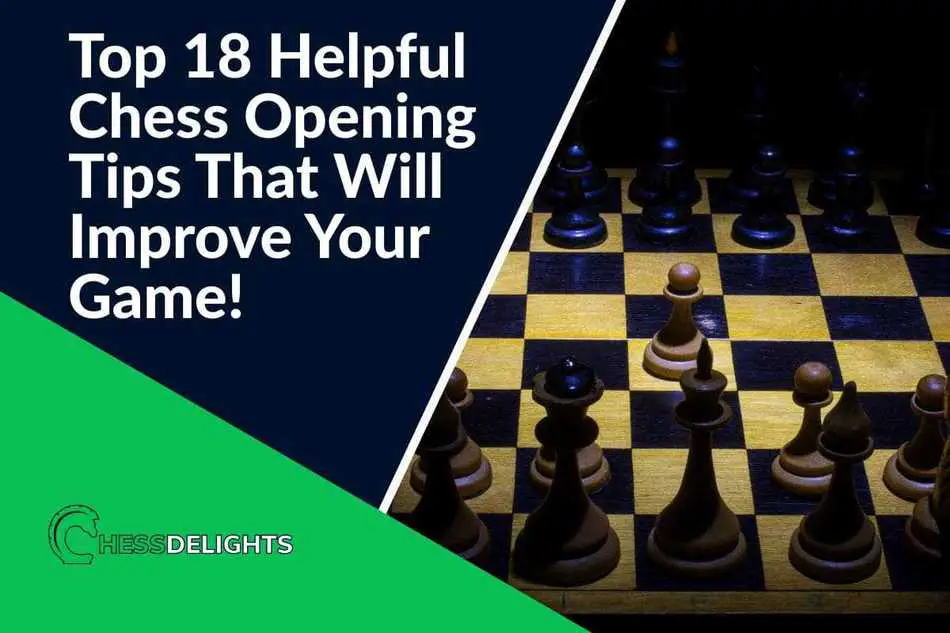So you want to improve your chess ratings?
Well, I bet almost all chess players would want to see their ratings reach a certain number.
I do want to see my chess ratings increase (online though)…
The only way I know is you need to become a better chess player, which also means you eventually increase or improve your chess rating over time.
In this article, we are going to learn about chess ratings, also look at some useful tips to improve it, and general ideas in becoming a better chess player.
Useful tips on how to improve your chess ratings
Chess is a game of competition between two players.
While we know that we have two opposing parties, represented by White and Black, we have also to remember that formal tournament; there is a system wherein you have to play someone who is more or less within your skill level.
Organizers are not going to sacrifice gameplay in the top boards pitting lower-ranked players battling it out against top-seeded players in the first few opening rounds.
Should a lower-ranked player reach the last few rounds in the top board, then it must be because of his skill.
A competitive chess player would have to be able to understand the system of the Elo rating to get his norms for various titles in the chess world.
So, the question now is, how can someone who is a relative newcomer to the field of chess be able to improve his chess rating? How would he go about it? What does he need to do?
Want to know past and present ratings of popular chess players? Check out this book about on Amazon.
What is the rating system in chess?
There exist several rating systems in chess. These rating systems are used to estimate the relative strength of a player based on his performance against other players.
These ratings are used by renowned chess organizations such as the FIDE, the United States Chess Federation, the International Correspondence Chess Federation and the English Chess Federation, to name but a few.
Other countries have adopted one rating system or the other to provide for their players’ strengths.
Ratings are usually calculated after every tournament that a player enters.
Sometimes though, ratings can be calculated after every individual game has passed. Whatever the system used, the higher the number means that the player who has it is considered stronger.
If a player performs well during his tournament, his ratings go up. If he conducts way below expectations, then the opposite is also exact – his ratings would go down.
The magnitude of the increase or the decrease in the rating depends on the rating of his opponent.
Right now, the Elo rating is the most widely used in the world.
You may also be interested in reading about some valuable history of chess in this article.
What is the Elo Rating?
A player’s Elo Rating hinges on his performance, as we have previously stated. It was devised by Arpad Elo, who was a master-level chess player and an active participant in the United States Chess Federation.
His system replaced the earlier used systems in rating players such as the Harkness system, which was devised by Kenneth Harkness.
While the Harkness system was relatively fair, some sectors thought it gave much more precedence to some rather weak achievements that gave rise to entirely inaccurate ratings.
Elo’s system is based on statistical estimation and replaced the generally accepted subjective evaluation of specific achievements in sports.
The Elo rating relates the game’s results to other underlying variables that represent the ability of each player.
You may want to read an article about “cleaning silicone chess board“
There are different ways to calculate the Elo Rating, but there is a simple way that can be used, which is called the performance rating.
In terms of performance rating, which in itself is a hypothetical rating system, we have to take into consideration the results of a single event only.
The algorithm of 400 is used by most chess organizations to come up with the performance rating of an individual chess player.
For each win in the tournament, you add the opponent’s rating plus 400. For each loss, you add your opponent’s rating less than 400.
You then get the total and divide it by the number of played games. The increase or decrease in your rating would be based on how well you did in the tournament.
The bigger the fish you defeat, the higher your rating would become. Consequently, any loss to a lower-ranked player would also result in a drastic decrease in your player performance rating.
Learn more about this on this book (link to Amazon)
How can I increase my Elo Rating?
You may also want to read an article about “how to teach a 6 year old chess“
For a chess player to increase his Elo rating, he must be able to compete in rated tournaments and perform better than expected.
He must be able to topple higher-ranked opponents and not lose to lower-ranked opponents.
So, how can we effectively do this, you might ask?
There are several ways to improve your rating, but the most important thing you have to remember is that you have to be able to hone your skills in any way you can.
You can get to play as many unranked games as you want to get a better feel for the game.
The more you play, the better you get to identify and anticipate the moves your opponent would be making at a particular juncture in the game.
Here is an article about practical tips to get better at chess.
The more understanding that you have for the nuances of the game, the better you would be. And once you get to apply this to a ranked tournament, the better the results you would have.
This is to say that getting a higher Elo rating is not going to be that simple. It is going to be an investment of sorts if you want to cop that norm to complete that title you wish to affix to your name.
The recognition that goes with having a recognized chess title is motivation enough for some players to continually sacrifice their free time to the pursuit of getting themselves prepared for more tournaments.
You have to be able to make the sacrifice of playing and strategizing for hours every day and then getting exposed to competitions where you would be able to compete among the best in the field.
Read this blog post about advanced chess strategies.
The more wins you notch under your belt, the better your Elo rating would be.
Aside from getting the rating points from the tournaments that you find yourself participating in, you can improve your Elo rating through constant practice.
You have to be able to master the different techniques that go well with that particular opening you fancy.
Or that counter opening you would like to employ against someone whom you are playing with.
As a chess player, you have to be able to master not just one opening sequence but as many as you can to cope with the possibilities that each opposing player presents.
Here are some more tips to help you improve your rating in tournaments:
1. Calculate your moves
Computers excel in chess because they have such an impressive capacity to calculate moves and string such possibilities fast.
Since you are not a machine, and you have a limited calculating ability, you have to be able to increase that inherent capacity through constant training.
You must be able to anticipate and calculate the moves of your opponents at least two to five moves far ahead in the game. It is not easy to do, but it is doable.
You can do this by playing chess puzzles and trying to solve them.
You can see the different lines that would happen as you analyze the situations that present themselves to you.
2. Master and practice chess strategies
As you become more confident with your chess-playing ability, you have to be able to master your strategy for the opening game, the middle game, and the endgame.
It has to come naturally to you to ensure that you would get the best results possible.
Again, countless hours examining and analyzing the position and imagining the possibilities would do well to improve your chess skills.
As we have also mentioned previously, we must be able to master many variations of the frequent chess openings to ensure that we would be able to provide a good game for our opponents.
We can, therefore, adjust the flow of the game accordingly. The more we can do this, the better the results we have. And it doesn’t matter if you would be handling White or Black pieces.
If you can dictate the strategy, you would be able to get more victories for yourself.
3. Practice King attacks
We all know that a checkmate is the ultimate goal in chess.
We must never feel down if we are down a piece or two against our opponent as long as we have a winnable or attacking line that can result in victory.
We always have to be aggressive on our style of play as we have to be as relentless as possible.
Therefore, it makes sense to primarily plan on attacking the King at all costs.
You may want to read about chess tricks and lessons in this article.
Wrapping Up
If you are serious about increasing your Elo rating, then there is no secret at all.
You have got to be able to put in the time so that you can gain a lot of points that would count towards your ratings.
You have to be able to play in as many tournaments that grant rating points and do well. But to get to that level, you have to be able to gain more understanding of the game.
You must be able to put in the time to analyze past games and be able to anticipate and dictate the pace of the game.
The more you master your strategies and the possibilities that your opponents would present, the higher the chances are that you would get the victory and with it not only bragging rights but also those essential rating points.
Hey, feel free to share this article with your friends and family who loves to play chess as well!
Have fun learning about chess ratings! 🙂
Hey, don't forget to check out ChessDelights chess recommendations.
